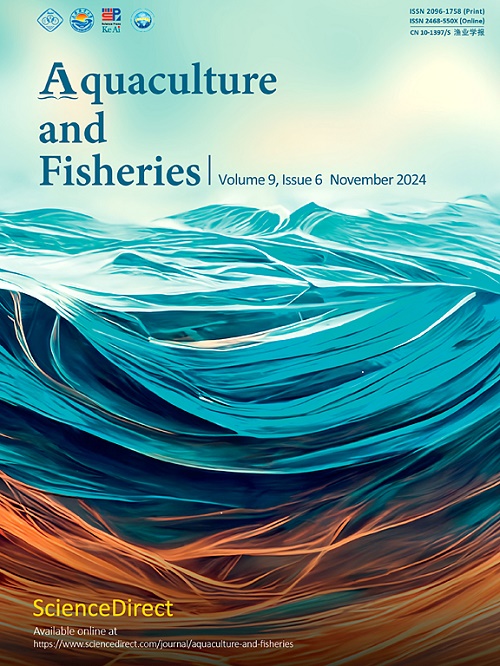新旧对比:这对渔具性能有影响吗?
Q1 Agricultural and Biological Sciences
引用次数: 0
摘要
由于成本高昂,测试拖网尺寸选择性设备的海上试验往往时间有限,而且试验结果可能受到多种因素的影响,而这些因素往往被忽视。在巴伦支海的鳕鱼拖网渔业中,必须在鳕鱼网箱前使用尺寸分类网格。柔性格网是一种包含两个柔性格网的网具,是该渔业中使用最广泛的格网。不过,早先使用这种装置进行的选择性研究结果并不确定。据推测,观察到的差异是由于所比较的研究中网格部分的使用年限和使用方式不同造成的。为了揭示设备结构随时间推移发生的潜在变化是否会导致尺寸选择特性的差异,我们进行了对比捕捞试验,比较了一个全新的挠性格栅部分和一个商业拖网渔船持续使用了约四年的使用良好的挠性格栅部分。结果显示,新型柔性格栅释放的 60 厘米以下的鳕鱼明显多于使用过的柔性格栅。然而,当用随后的菱形网鳕鱼网兜捕捞栅格时,两种渔具的总体选择性没有差别,这意味着鳕鱼网兜的尺寸选择性弥补了栅格选择性性能的潜在下降。这项研究表明,在将分选格栅等尺寸选择装置与其他装置进行比较之前,考虑其使用年限和早期使用情况非常重要,因为它们的尺寸选择特性会随着时间和使用发生显著变化。本文章由计算机程序翻译,如有差异,请以英文原文为准。
Used vs. new: Does it have consequences for the performance of fishing gear?
Sea trials to test size selectivity equipment in trawls are often limited in time because they are costly, and the results can be influenced by multiple factors that are often overlooked. In the Barents Sea gadoid trawl fishery, the use of a size sorting grid in front of the codend is compulsory. The flexigrid, a netting section containing two flexible grids, is the most widely used grid section in this fishery. However, earlier selectivity studies with this device have shown inconclusive results. It has been speculated that the differences observed resulted from the difference in age and usage of the grid sections in the studies compared. To reveal whether potential changes in the device construction over time can lead to differences in size selection properties, we performed comparative fishing trials where we compared a brand new flexigrid section and a well-used flexigrid section used continuously by a commercial trawler for approximately four years. The results showed that the new flexigrid released significantly more cod below ∼60 cm than the used flexigrid. However, when the grids were fished with a subsequent diamond mesh codend, there was no difference in the overall selectivity of the two gears, meaning that the size selectivity in the codend compensates for the potential reduction in selectivity performance of the grids. This study shows the importance of considering the age and earlier use of size selection devices like sorting grids before they are compared with other devices, as their size selection properties can change significantly over time and with use.
求助全文
通过发布文献求助,成功后即可免费获取论文全文。
去求助
来源期刊

Aquaculture and Fisheries
Agricultural and Biological Sciences-Aquatic Science
CiteScore
7.50
自引率
0.00%
发文量
54
审稿时长
48 days
期刊介绍:
 求助内容:
求助内容: 应助结果提醒方式:
应助结果提醒方式:


